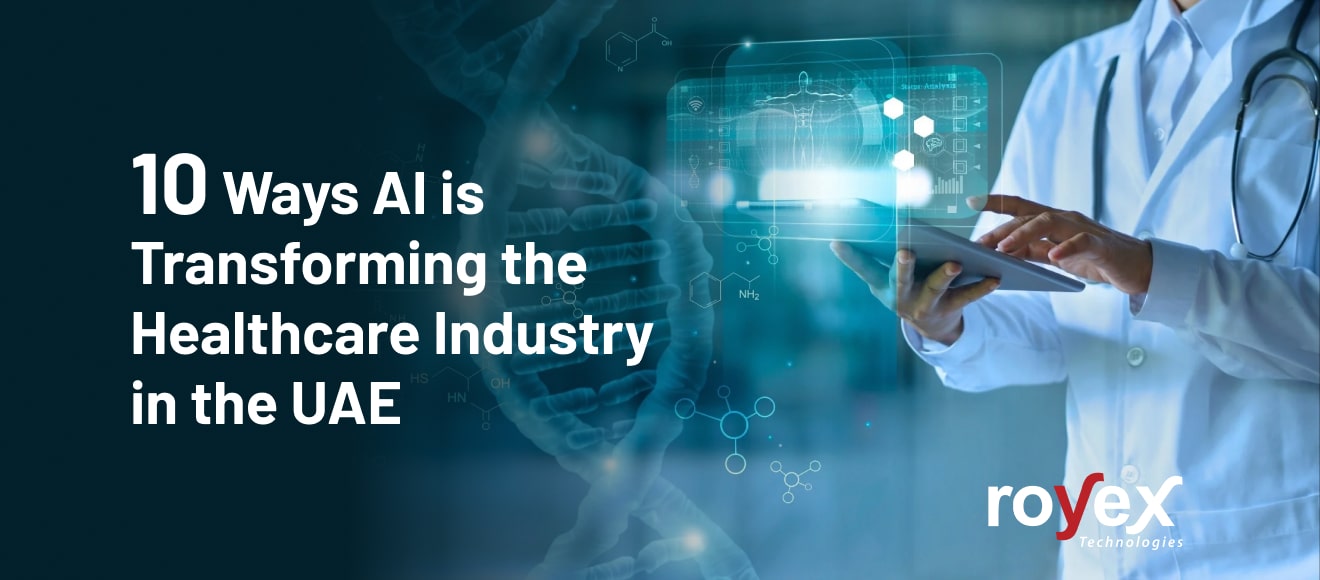
10 Ways AI is Transforming the Healthcare Industry in the UAE
Artificial Intelligence (AI) is changing the way healthcare works all over the world, and the UAE is leading this transformation. AI technology helps doctors, hospitals, and patients by making healthcare services faster, more accurate, and more accessible. From diagnosing diseases earlier to improving patient care, AI is becoming a key part of the medical field.
According to a report by PwC, AI could add up to $320 billion to the Middle East economy by 2030, and healthcare will be one of the industries benefiting the most. The UAE government understands the power of AI and has made huge investments in AI-driven healthcare solutions. The goal is to improve efficiency, reduce human errors, and provide high-quality medical services to everyone.
With advanced AI tools, hospitals in the UAE can now predict diseases, offer virtual consultations, and even use robots to assist in surgeries. These technologies are helping doctors make better decisions, improving patient experiences, and making healthcare more affordable.
Here are ten ways AI is reshaping healthcare in the UAE.
1. Faster and More Accurate Diagnoses

AI-powered diagnostic tools are improving the speed and accuracy of disease detection. Machine learning algorithms analyze medical images such as X-rays, MRIs, and CT scans to identify conditions like tumors, fractures, or infections within seconds. These AI systems assist radiologists in making precise diagnoses, reducing the chances of human error and ensuring early intervention for better patient outcomes.
2. Smart Chatbots for Patient Support
Hospitals and clinics in the UAE are integrating AI-driven chatbots to enhance patient support. These chatbots assist patients by answering common medical queries, scheduling appointments, and providing preliminary diagnoses based on symptoms. Available 24/7, chatbots help reduce patient waiting times and free up healthcare professionals for more critical tasks.
3. Robotic Surgery Assistance
AI-powered surgical robots are transforming the way surgeries are performed in the UAE. These robots assist surgeons with high-precision procedures, minimizing risks and reducing recovery time for patients. By providing enhanced dexterity and accuracy, AI-assisted robotic surgery ensures better outcomes for complex operations such as heart surgery, orthopedic procedures, and neurological treatments.
4. Predicting and Preventing Diseases
AI helps healthcare professionals predict disease risks and prevent complications before they arise. By analyzing patient medical records, lifestyle habits, and genetic factors, AI can forecast potential health issues like diabetes, heart disease, and hypertension. This proactive approach allows for early treatment and lifestyle adjustments, reducing the burden on the healthcare system.
5. Personalized Treatment Plans

AI tailors treatment plans to suit individual patients' needs. By analyzing a patient’s medical history, genetic data, and current health condition, AI recommends the most effective treatments and medications. This precision medicine approach ensures patients receive targeted therapies, reducing side effects and improving treatment success rates.
6. AI-Powered Drug Discovery
Developing new drugs is traditionally a long and expensive process, but AI is speeding up pharmaceutical research in the UAE. AI analyzes vast datasets to identify potential drug candidates, predict their effectiveness, and streamline clinical trials. This technology is particularly useful in discovering new treatments for conditions such as cancer, Alzheimer’s, and infectious diseases.
7. Remote Patient Monitoring and Telemedicine
AI-powered wearables and mobile applications are enabling remote patient monitoring, allowing doctors to track vital signs such as heart rate, blood pressure, and oxygen levels in real time. Telemedicine services, enhanced by AI, enable doctors to diagnose and treat patients remotely, making healthcare more accessible, especially for those in remote or underserved areas.
8. Improved Hospital Management and Workflow Efficiency
AI is streamlining hospital operations by optimizing patient records, staff scheduling, and medical supply chains. AI-driven administrative tools help hospitals manage resources efficiently, reduce paperwork, and minimize patient waiting times. This ensures a smoother workflow and better overall patient care.
9. AI in Medical Research and Data Analysis
AI accelerates medical research by analyzing large datasets quickly and accurately. UAE-based healthcare institutions are using AI to conduct research on various diseases, including cancer, COVID-19, and genetic disorders. AI-driven insights help researchers develop better treatment strategies and contribute to medical advancements.
10. Enhancing Mental Health Support
AI-powered mental health applications and chatbots are providing accessible mental health support to individuals in the UAE. These AI tools offer stress management techniques, therapy recommendations, and emotional support through guided conversations. They play a crucial role in making mental health care available to those who may not have immediate access to professional therapists.
Conclusion
The UAE is rapidly adopting AI-driven solutions to revolutionize healthcare, making it more efficient, accurate, and accessible. From faster disease detection to AI-assisted surgeries and personalized treatments, AI is transforming every aspect of the healthcare industry. With continued investments and innovations, AI will play an even bigger role in ensuring a healthier future for the UAE’s population.
AI offers a plethora of options suitable for various company sizes and financial capacities. Should you require internal expertise to navigate suitable tools for your business, consulting a leading artificial intelligence (AI) company in Dubai, like Royex Technologies, can prove invaluable.
Check our portfolio to see our previous works. Contact us via email at info@royex.net or call us at +971566027916. To get started with us.




